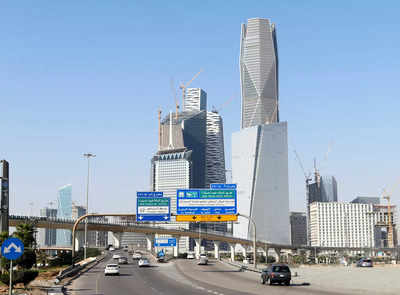
Effective from January 1, 2024, this initiative, known as the Regional Headquarters Program (RHQ), requires multinational corporations (MNCs) intending to engage in business with the Saudi government to establish their RHQs in the Kingdom. The program offers several incentives, including a 30-year tax holiday on corporate and withholding taxes for qualifying activities. Companies are also exempted from Saudization requirements for the first ten years, making it an attractive proposition for firms looking to consolidate their regional operations.
KAFD, the primary location for these RHQs, is rapidly becoming a hub for international business, providing state-of-the-art infrastructure and strategic advantages for companies. This development aligns with Saudi Arabia's Vision 2030, which aims to diversify the economy and reduce its dependence on oil by fostering a more vibrant private sector.
Several high-profile firms have already established their regional headquarters at KAFD, benefiting from the program’s generous incentives. The influx of these firms is expected to significantly boost the local economy by creating jobs and increasing demand for services. Moreover, it strengthens Saudi Arabia’s position as a leading business destination in the Middle East.
However, companies setting up RHQs must comply with specific regulations. They are required to perform strategic management activities on behalf of their regional branches and affiliates, aligning with the Ministry of Investment of Saudi Arabia's (MISA) guidelines. These activities must be documented meticulously to ensure compliance, as any deviation could jeopardize their RHQ status, potentially disrupting their operations in Saudi Arabia.
Tax regulations are also a critical aspect for companies operating under this program. While the RHQ program provides significant tax relief, firms must adhere to transfer pricing rules as set out by Saudi Arabia’s Zakat, Tax, and Customs Authority (ZATCA). This includes ensuring that all intercompany transactions are conducted at arm's length to avoid issues related to tax arbitrage. Failure to meet these requirements could lead to increased scrutiny from tax authorities, not only in Saudi Arabia but also in other jurisdictions where the firm operates.
The establishment of RHQs in Saudi Arabia marks a significant shift in the business landscape of the Middle East. By attracting global firms to its shores, the Kingdom is not only securing economic growth but also establishing itself as a central player in the region's business environment. This strategy is likely to have long-term implications for the region, influencing where companies choose to base their operations and how they interact with Middle Eastern markets.
As more firms set up their regional bases at KAFD, Saudi Arabia is poised to become a pivotal business hub in the Middle East, offering unparalleled opportunities for multinational corporations looking to expand their footprint in the region.
Topics
Gcc
